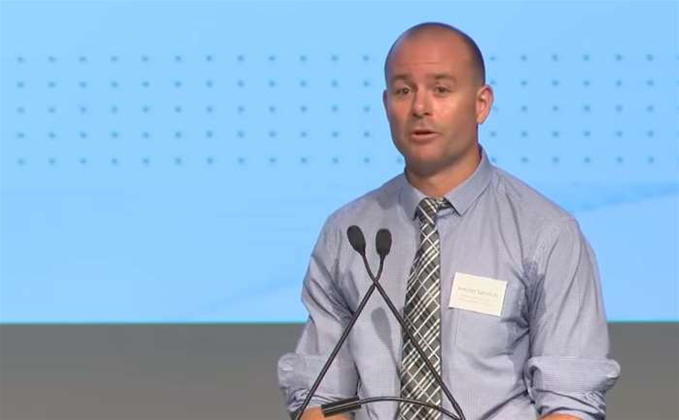The Queensland Police Service has plucked Jenson Spencer out of the state's shared services agency to become its first ever chief digital officer, offering a newfound freedom to pursue innovations while someone else worries about keeping the lights on.

QPS chief commissioner Ian Stewart told iTnews the CDO's remit would be long-term innovation to ensure the service doesn’t lose its place “at the front of the queue” when it comes to police digitisation.
“With the work we need Jenson to do now, he can’t keep being distracted by BAU [business-as-usual],” he said.
“This role will give him the space and the time to interact right across the organisation, and to really come to grips with the things that are currently happening and about to happen that we can latch on to.”
However, at the moment the position is a trial one - there is yet to be a full recruitment process. Stewart said he expected to make a decision on the future viability of the job by the the middle of next year, when he would make an open call for applications.
The QPS has earned a reputation as an early adopter of digital technologies in the Australian law enforcement ranks. It was the first local police agency to begin seriously looking at equipping officers with tablets - with 8250 now funded - and has recently committed to 2700 body-worn video cameras.
Stewart said his agency has been able to seize these opportunities thanks to brave decisions made by tech executives all the way back to 1999, which have seen the agency dump mainframe systems and “leapfrog” interim technologies to stand up an integrated core policing database.
It's the kind of thinking he’s trying to replicate with the CDO role.
“It’s about making sure we have options into the future - that we’re not driven down a particular path by budgets or a lack of foresight,” he said.
Spencer - who has been heading technology for the Public Safety Business Agency for the past three years - said the new role makes him “spring out of bed in the morning.
He has been unshackled from the concerns of business-as-usual IT operations, which remain the responsibility of his former colleagues at the PSBA, to begin consultation across the force and hammer out where the gaps lie.
“Big IT places, like the Queensland Police, tend to bolt things on and continue to add new systems on without stopping to look at the inherent duplication and complexity that causes for users," Spencer said.
“My role is to detach myself from the day-to-day running of these systems and actually work with people on what they really need, and try to focus on their experience and simplify their world."
Initial low-hanging fruit includes breaking down the internal silos keeping spatial data locked up by specific policing units, and implementing better ways to share information between police, government, and the public.
Spencer said members of the 13,000-strong agency have already started reaching out to him with their ideas.
“Which is exactly what this role is about,” he said.











 iTnews Benchmark Awards 2026
iTnews Benchmark Awards 2026
 iTnews Executive Retreat - Security Leaders Edition
iTnews Executive Retreat - Security Leaders Edition
 iTnews Cloud Covered Breakfast Summit
iTnews Cloud Covered Breakfast Summit
 The 2026 iAwards
The 2026 iAwards












_(1).jpg&h=140&w=231&c=1&s=0)



